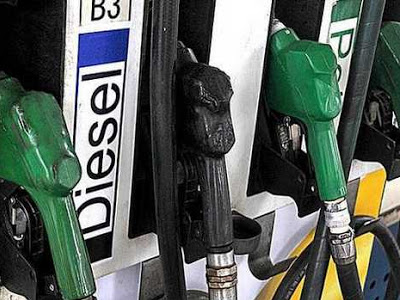If the government wants, they can easily reduce excise duty on petrol and diesel by up to Rs 8.5 per liter. This will not affect their revenue too much. ICICI Securities has claimed this in one of its reports.
Significantly, petrol and diesel prices in the country are running at a record high. The most important thing is that a large part of this price is due to tax. About 60 per cent in petrol and about 54 per cent in diesel are from the central and state taxes. For example, the petrol Delhi residents are buying for about Rs 91 per liter, is about Rs 54 in tax. The central government levies excise duty on this, while the state governments levy VAT or sales tax.
Therefore, there is a voice from every side that the government should reduce the tax on petrol and diesel. In a recent Reuters report, quoting sources from the Finance Ministry, it was claimed that the government was considering it and a decision could be taken after March 15.
What said in the report
ICICI Securities has said in a report, ‘We estimate that if there is no reduction in the excise duty on vehicle fuel in FY 2021-22, its collection will reach Rs 4.35 lakh crore, while the budget estimate is 3.2 lakh lakhs. Accordingly, if the excise duty is also reduced by Rs 8.5 per liter on or before April 1, 2021, then the budget estimate for the next financial year will be achieved.
ICICI Securities has hoped to cut excise duty amid improvement in demand, encouraging privatization and rising concerns over inflation, but the reduction may be less than Rs 8.5 per liter. Between March and May 2020 last year, the excise duty on petrol was increased by 13 rupees and diesel by 16 rupees a liter.
According to the price of 1 March in Delhi, the petrol of Rs 91.17 a liter costs an excise duty of Rs 32.90. Prior to this, the Center had increased excise duty on petrol and diesel nine times between November 2014 and January 2016, taking advantage of the falling prices of crude oil in the international market.

![Buddha Purnima 2025 [TKB INDIA]](https://topknowledgebox.com/iphaphoo/2025/05/12052025-150x150.jpg)
![YouTube is about to turn 20, the company announced many big features [TKB Tech]](https://topknowledgebox.com/iphaphoo/2025/04/28042025-150x150.jpg)
![Basant Panchami 2025: Know the correct date and auspicious time [TKB INDIA]](https://topknowledgebox.com/iphaphoo/2025/01/31012025-150x150.jpg)

![Amazing feature of WhatsApp, you will be able to reply without listening to the voice message[TKB Tech]](https://topknowledgebox.com/iphaphoo/2024/11/24112024-150x150.jpg)





More Stories
Children born from today (01/01/2025) will be Generation BETA… Know why ?
Basant Panchami 2024 Date: Know the auspicious time, worship method and divine remedies[TKB INDIA]
Powerful earthquake in New Zealand, intensity was 7.0 on Richter scale [TKB Science]